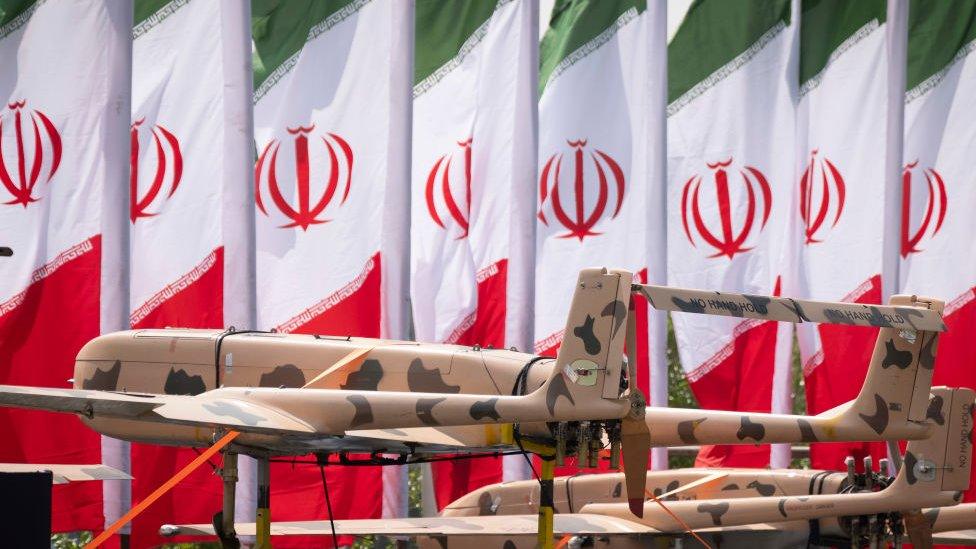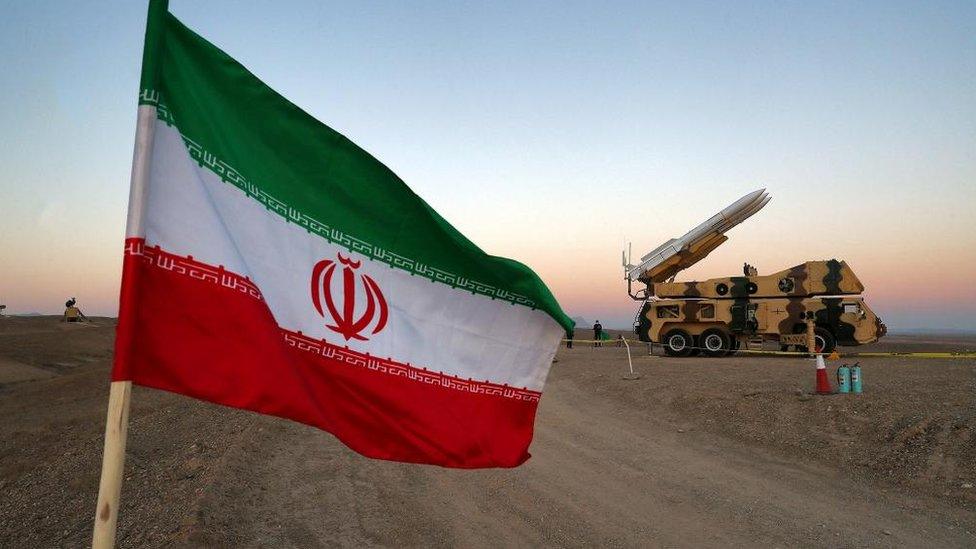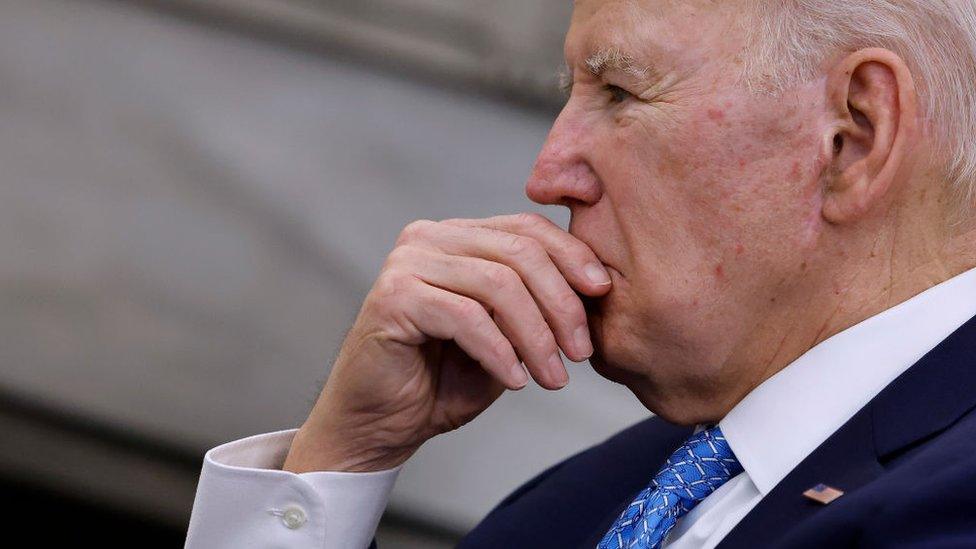Iran sanctions: US and UK extend measures against Tehran
- Published

The US and UK have imposed a new wave of sanctions against Iran, following its drone attack on Israel.
Washington targeted 16 people and two entities that produce engines for the drones.
The UK Foreign Office imposed a travel ban and asset freeze on seven individuals and six entities, including those involved in drone and missile programmes.
Both countries already have hundreds of sanctions in place against Iran.
The latest move follows Israel's call for support from the international community after Iran's direct assault on Saturday, involving more than 300 missiles and drones fired from Iran, Iraq, Syria and Yemen. Almost all were downed by Israel and its allies.
Tehran has maintained the attack was in retaliation for a presumed Israeli air strike on its consulate in Syria on 1 April, in which 13 people were killed.
The US sanctions target Iran's drone programme, its steel producers and vehicle companies connected to the Islamic Revolutionary Guard Corps (IRGC) and Ministry of Defence.
US President Joe Biden said leaders of the G7 group of leading world economies were committed to collectively increasing economic pressure on Iran.
"Our allies and partners have or will issue additional sanctions and measures to restrict Iran's destabilising military programmes," he said.
The US has imposed more than 600 sanctions on Iranian-related entities since Mr Biden took office three years ago, according to the US Treasury.
The latest measures by the UK Government add to a 400-strong list of sanctions against the country, which include the IRGC in its entirety.
Announcing the sanctions on Thursday at the G7 Foreign Ministers meeting in Capri, Foreign Secretary Lord Cameron said the joint action with the US demonstrated "unequivocal condemnation of Iran's attack on a sovereign state".
"Today's designations have been made under the UK's new Iran sanctions regime, which enables the UK to target Iran's hostile behaviour," he said.
"Further escalation is in no-one's interest."
The US and UK sanctions were announced a day after a new package of measures by the European Union.
The EU also agreed to expand sanctions on Iranian producers of drones and missiles, in addition to those already in place on selling drones to Russia for use in its war against Ukraine.
The Israeli government has repeatedly vowed to retaliate after Iran's unprecedented attack last week.
But Israel's allies are increasingly treading a delicate diplomatic line.
Mr Netanyahu has said his government will "do everything necessary to defend itself".
In a meeting with him on Wednesday, UK Foreign Minister Lord Cameron told him any response should be "smart" and limited, while UK Prime Minister Rishi Sunak warned that "significant escalation will only deepen instability in the region".
Less than a month ago, Mr Biden expressed frustration at the lack of humanitarian aid getting into Gaza, following the deaths of seven international aid workers by the Israel Defence Forces.
Both the US and UK governments have faced mounting pressure to cease supplying Israel with weapons.
Related topics
- Published18 April 2024

- Published17 April 2024
